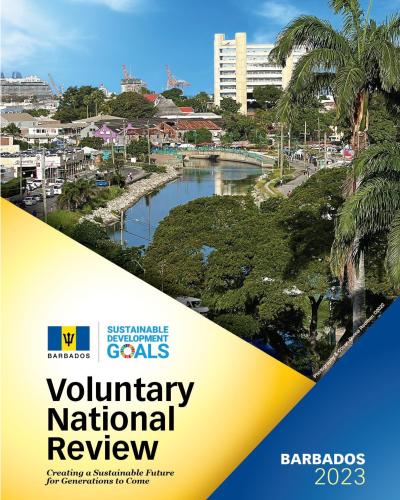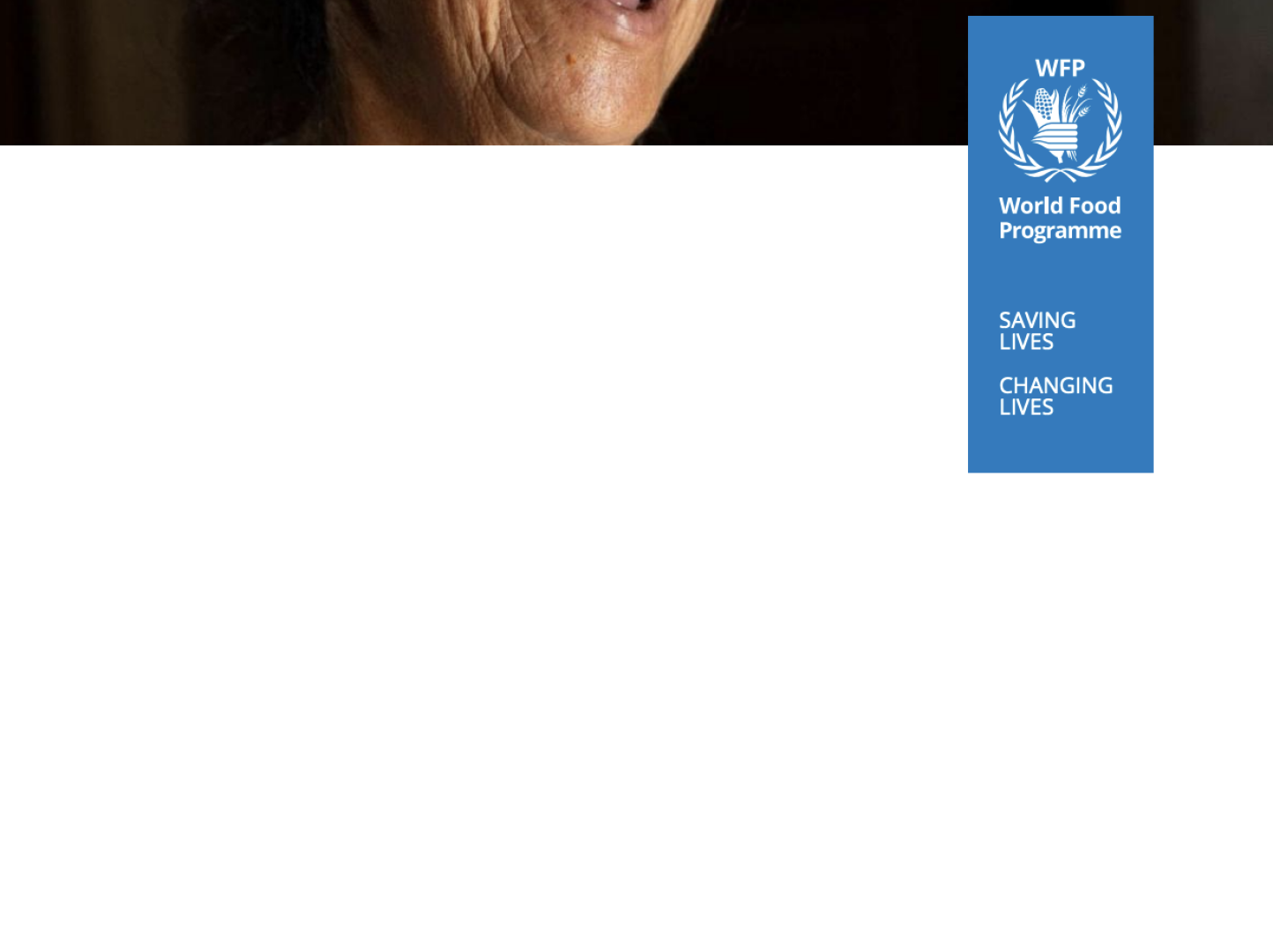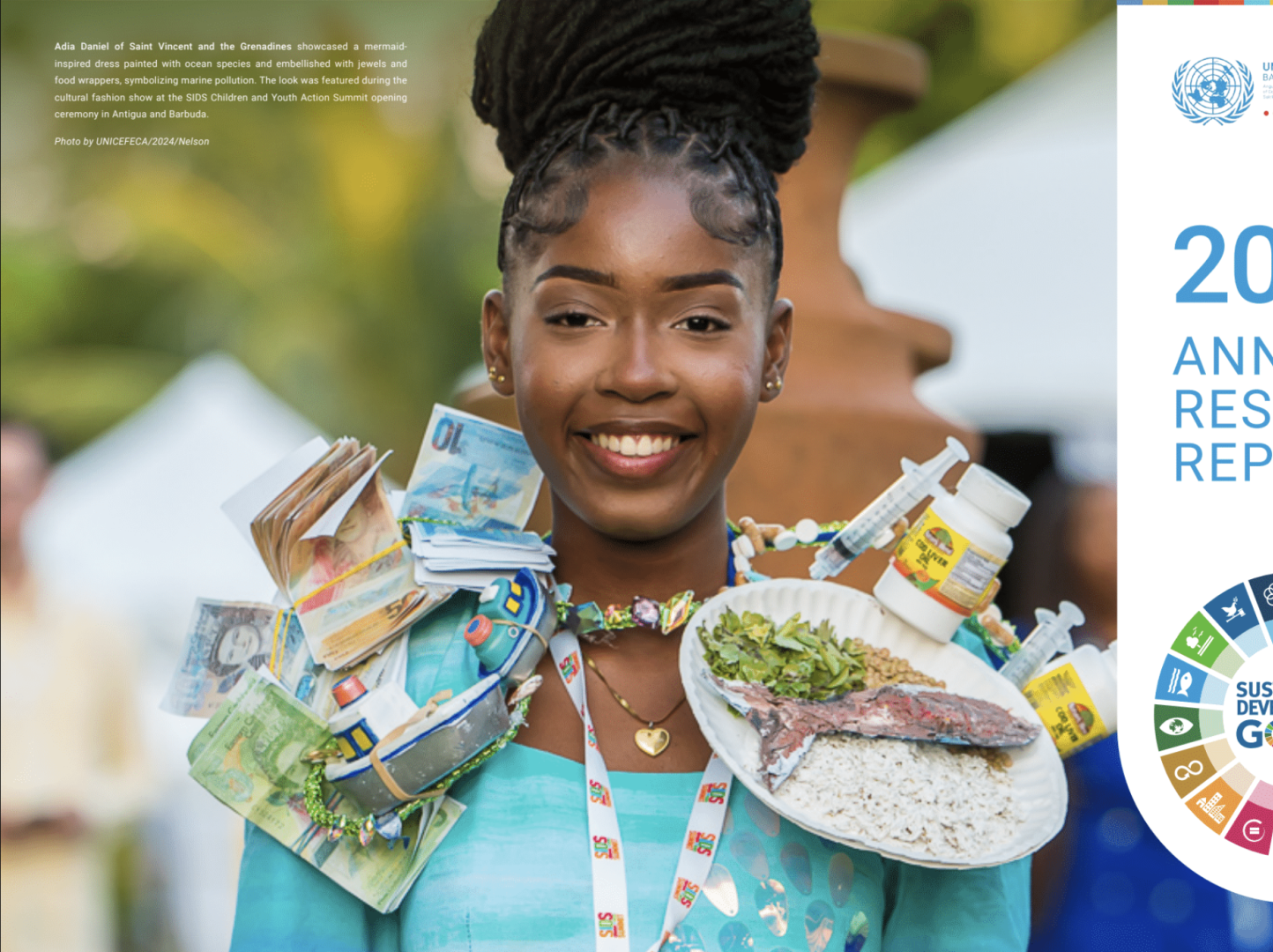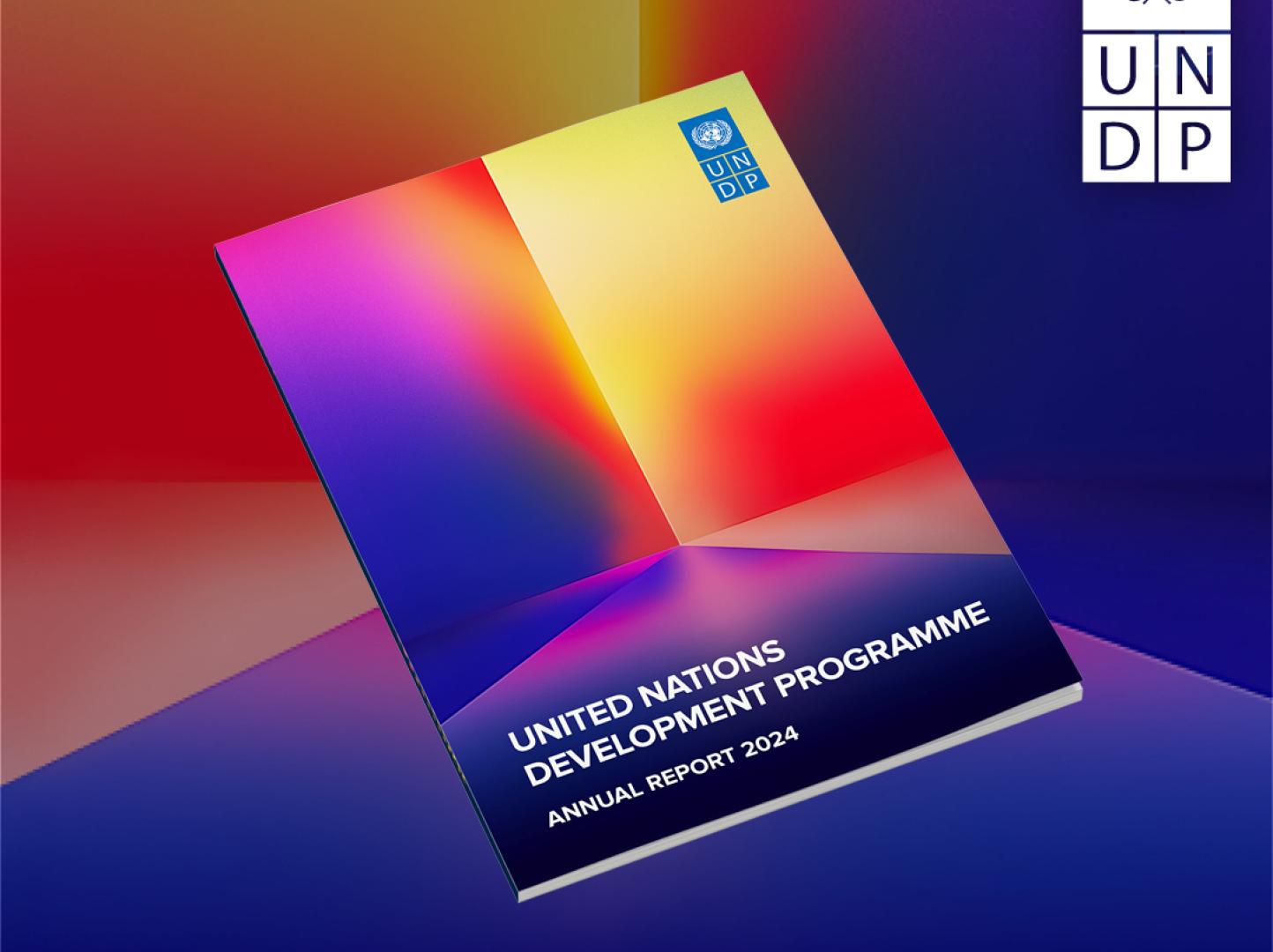Barbados Voluntary National Review 2023

The global ambitions of Barbados cannot be contained within its 437 sq. kilometers. As a small island developing state, and also a large ocean state, which recognizes our commitment to the global community and the importance of collective action toward the achievement of common goals, our 2023 Voluntary National Review signals the commitment of the Government and People of Barbados to implement the 2030 Agenda for Sustainable Development. Our VNR process encompassed stakeholder engagement within and across the private and public sectors as well as civil society, affirming our commitment to leave no one behind.
Our major SDG initiative, The Barbados Economic Recovery and Transformation (BERT) Plan 2.0, aims to restore macroeconomic stability and place the Barbados economy on a path of strong, sustainable and inclusive growth, while safeguarding the financial and social sectors. This home-grown plan is transformative in its design, using fiscal policy to facilitate increased social protection by shifting the burden of responsibility away from the most vulnerable. Barbados has increased investments in health, education and other social services which impact positively on well-being and reduce inequality and poverty. We are certain that investment in home-grown initiatives for national transformation which are being developed and implemented, like The Declaration of Mission Barbados, will further progress in fulfilling the 2030 Agenda.
Our journey towards sustainable development has been challenging given our vulnerabilities to the prevailing and often concurrent crises we face. The COVID-19 pandemic suppressed and stalled economic activity, resulting in increased levels of unemployment, particularly in the tourism sector. The Government of Barbados’ effort to combat the spread of the COVID-19 virus led to rapid increases in public sector spending, which left the public sector debt stock at US$ 6.5 billion, equal to 150.3% of GDP, representing a sharp increase from a debt-to-GDP ratio of 126.9% in June 2020 and resulting in considerable widening of our fiscal deficit. In spite of these challenges, Barbados remains committed to fighting the pandemic and protecting the most vulnerable in our community. The current debt to GDP ratio as of March 2023 is 119.6%.
Hurricane Elsa in 2021, the first hurricane to hit Barbados in 65 years, resulted in structural damage to homes and buildings costing the government over US $33 million in repairs thus far and expecting to rise to US$60 million. The triple crises of the COVID-19 Pandemic, the climate crisis and the war in Ukraine exacerbated our socioeconomic vulnerabilities, compelling us to adopt more sustainable, equitable and inclusive ways of building and producing.
To develop our national resilience to increasingly severe weather events, and encourage community and nature-based approaches and solutions to sustainability, the Roofs to Reefs Programme (R2RP) and the Revised Physical Development Plan are being implemented. Our approach calls for mitigation of climate crisis and adaptation to the unavoidable impacts. These policies reflect a deliberate integration of the SDGs into national programmes and policies as reflected in the 92% alignment of SDG targets with national policies in the 2023 Rapid Integrated Assessment for Barbados.
Small states are challenged to collect quality disaggregated data and report on the work being done to achieve the goals. This is one of our main impediments in measuring SDG implementation. Furthermore, as a high/middle income developing country, Barbados is constrained in accessing the finances necessary to fund SDG-promoting initiatives. Access to resources to facilitate the advancement of the Goals and ensure that no one is left behind is critical. Our collaborative effort to confront the climate crisis and the attainment of the SDGs by 2030, The Bridgetown Initiative (BI), seeks to overcome the shortcomings of mobilizing finance for climate vulnerable developing states; to normalize natural disaster and pandemic clauses in all lending instruments; to provide funding for loss and damages as a result of the climate crisis and; to widen access to concessional financing.
As we press towards accelerating the implementation of the SDGs, we recognize the importance of prioritizing holistic development and prosperity for our people. We have the opportunity to learn from each other, highlight the work countries are doing and mobilize global support to implement meaningful change to achieve the goals. Barbados remains a champion of change creating a sustainable future for generations to come.
For more, visit




















